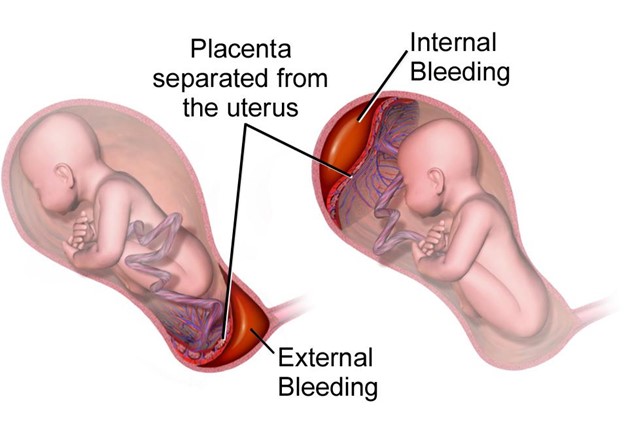A nurse is assessing a newborn whose mother had gestational diabetes. Which of the following findings should the nurse identify as a manifestation of hypoglycemia?
Hypertonia.
Jitteriness.
Acrocyanosis.
Generalized petechiae.
The Correct Answer is B
Choice A rationale:
Hypertonia (increased muscle tone) is not a manifestation of hypoglycemia in a newborn. Instead, hypotonia (decreased muscle tone) is more characteristic.
Choice B rationale:
This is the correct choice. Jitteriness is a common sign of hypoglycemia in a newborn. It may be accompanied by other symptoms like poor feeding, tremors, and irritability.
Choice C rationale:
Acrocyanosis (bluish discoloration of the hands and feet) is a normal finding in newborns and is not specifically associated with hypoglycemia.
Choice D rationale:
Generalized petechiae (small red or purple spots on the skin caused by bleeding under the skin) are not indicative of hypoglycemia but may be associated with other medical conditions.
Nursing Test Bank
Naxlex Comprehensive Predictor Exams
Related Questions
Correct Answer is A
Explanation
Choice A rationale:

Continuous abdominal pain and vaginal bleeding in a client with a history of cocaine use are indicative of abruptio placentae. Abruptio placentae is a medical emergency where the placenta detaches from the uterine wall before delivery, leading to severe bleeding and abdominal pain. Immediate medical intervention is necessary to prevent complications for both the mother and the baby.
Choice B rationale:
Hydatidiform mole is a gestational trophoblastic disease that occurs due to an abnormal pregnancy. It is not associated with continuous abdominal pain and vaginal bleeding. Instead, clients with this condition often present with vaginal bleeding and a grape-like cluster of cysts in the uterus.
Choice C rationale:
Preterm labor involves regular uterine contractions and cervical changes before 37 weeks of gestation. While preterm labor can cause abdominal discomfort, it is not usually described as continuous abdominal pain. Vaginal bleeding is not a typical symptom of preterm labor.
Choice D rationale:
Placenta previa is a condition where the placenta covers the opening of the cervix. It can cause painless vaginal bleeding, but it is not usually associated with continuous abdominal pain. Clients with placenta previa often experience sudden, painless bleeding later in pregnancy.
Correct Answer is ["A","C","D","E"]
Explanation
Choice A rationale:
Pointing out to the father that the newborn turns toward his voice helps him understand that the baby is already responding to him, promoting bonding.
Choice B rationale:
Asking the father why he is concerned about bonding with the newborn allows the nurse to address specific fears or misconceptions and provide appropriate support.
Choice C rationale:
Encouraging the father to touch and stroke the newborn's skin promotes physical contact and enhances the bonding process.
Choice D rationale:
Demonstrating diapering and swaddling techniques for the father helps him feel more confident in caring for his baby and fosters bonding through caregiving activities.
Choice E rationale:
Encouraging the father to lay the newborn beside him while both are sleeping promotes skin- to-skin contact and allows for bonding during restful moments. However, the nurse should ensure that safety measures are followed to prevent accidental suffocation. By following these actions, the nurse can support the father's bonding with his newborn and facilitate a positive and nurturing parent-infant relationship.
Whether you are a student looking to ace your exams or a practicing nurse seeking to enhance your expertise , our nursing education contents will empower you with the confidence and competence to make a difference in the lives of patients and become a respected leader in the healthcare field.
Visit Naxlex, invest in your future and unlock endless possibilities with our unparalleled nursing education contents today
Report Wrong Answer on the Current Question
Do you disagree with the answer? If yes, what is your expected answer? Explain.
Kindly be descriptive with the issue you are facing.
